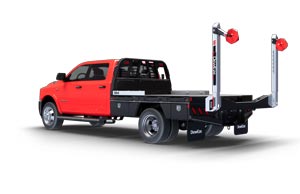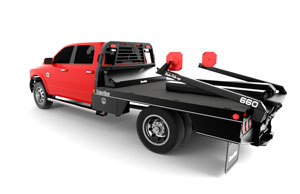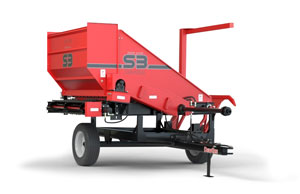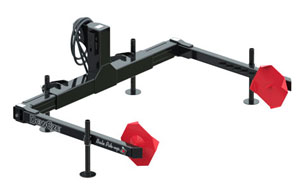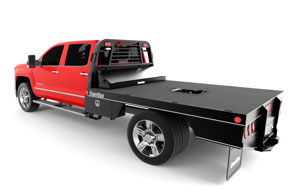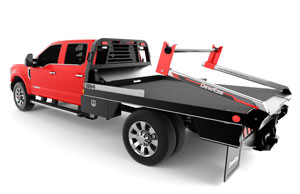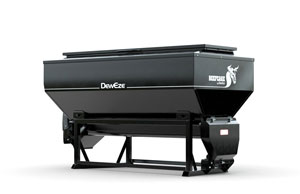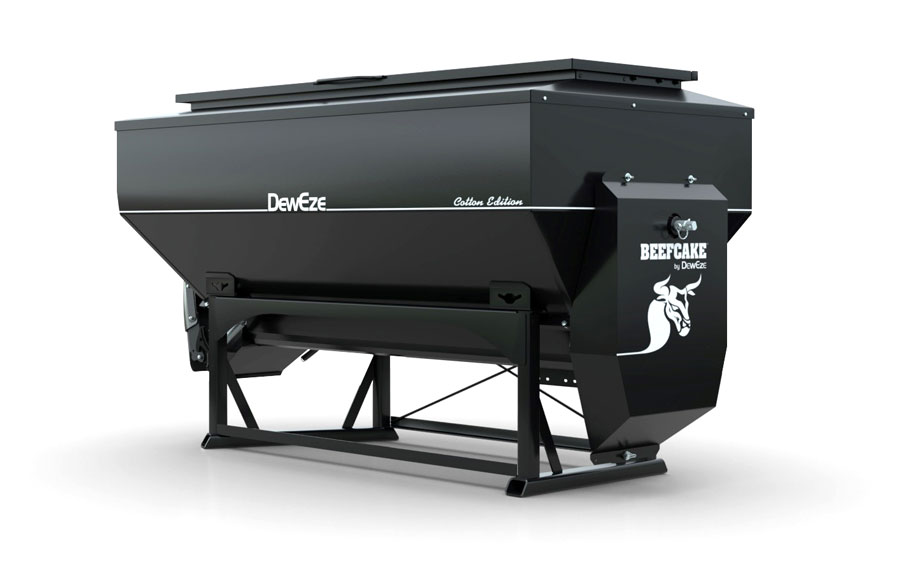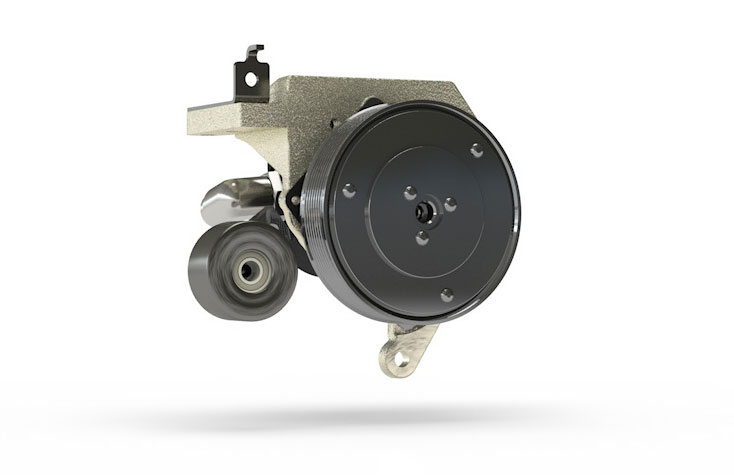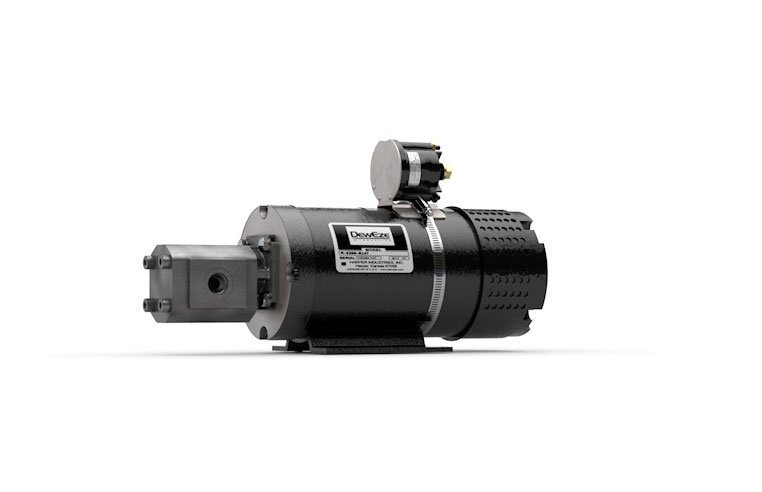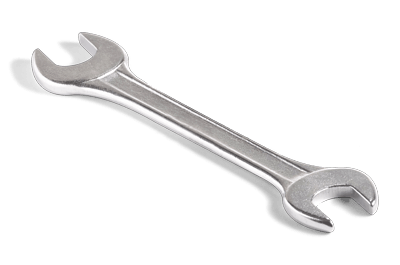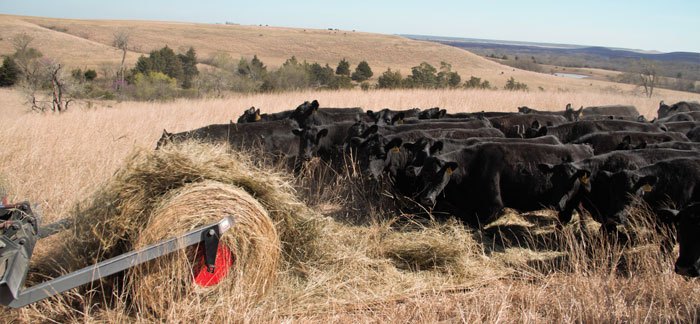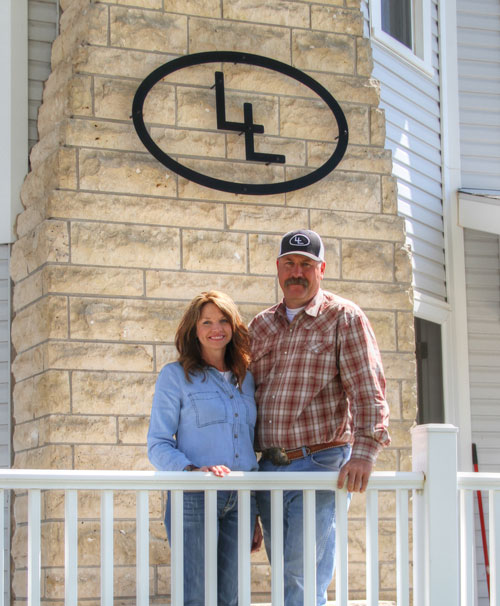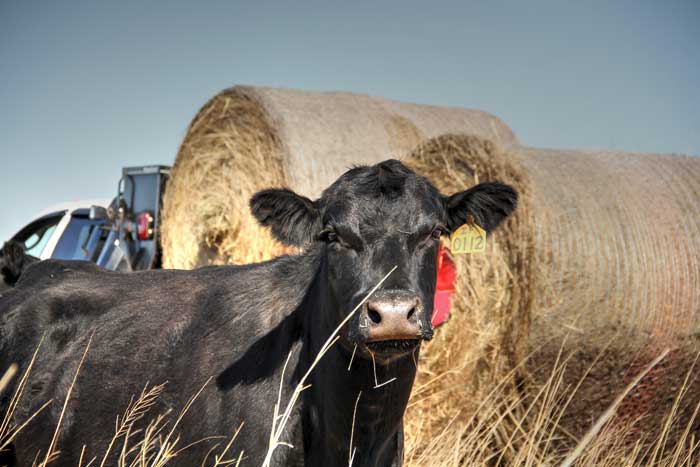ALTA VISTA, Kan. - In the rolling Flint Hills of Kansas, Karl and Amy Langvardt have tended many cattle over the last four decades. They both grew up with generations of livestock production behind them. Karl spent his childhood Saturdays riding horses in the alley penning cattle at the Langvardt family’s livestock sale barn. Amy helped raise Angus cattle with her parents at the family ranch south of Manhattan.
A Family Affair
Today, the couple and their sons operate Lyons Ranch, a 300 head registered Angus cow-calf operation, with Amy’s parents, Jan and Frank Lyons. They also help run the Langvardt family’s two livestock auctions, JC and Clay Center Livestock Sales, with Karl’s family, Mitch, Lynn and Ann Langvardt.
“We serve mostly commercial cattle people, many of whom sell their calves out of our bulls at our sale barns,” Karl said. “It’s great to be able to see those animals and know they are working for people.”
The Langvardt family celebrated their 50th year in business in February with an Anniversary Sale at JC Livestock Sales.
To everything, there is a season
Amy’s mother, Jan, grew up with Angus cattle, and she always had an affinity for cattle and the people who raise them. The native grass in the Flint Hills has proven an excellent place for the family to be in the beef business.
The family holds their annual Lyons Ranch Superior Genetics Performance Angus Bull Sale the first Monday of every March. This year was the 28th consecutive sale.
Amy said the family tries to give back to the industry that has given them so much. Jan is a former president of the Kansas Livestock Association, National Cattlemen’s Beef Association and the Cattlemen’s Beef Board, as well as serving on 4-H and Extension Committees. Amy is a long-time member of the board for the Kansas Foundation for Agriculture in the Classroom.
“And, we try to serve the cattle people one on one at the sale barns and with the bulls we sell,” Amy said. “All segments of agriculture need to be working together for us all to be successful.”
Decades of durability
The introduction of the big round hay baler changed the way many ranchers do their jobs. The Langvardts use their DewEze beds to unroll big round bales of prairie, alfalfa and brome hay, depending on the time of year and hay quality.
“Karl and I both remember flaking small square bales of hay off the side and back of a pickup bed or a hay wagon to get the cows fed,” Amy said. “My folks would drive pretty slow to allow me and my sister to get the bales cut in time to go in a row.”
Because the Langvardts are heavily involved in both family businesses and spend hours on the road, time is of the essence.
“The main thing the DewEze beds have done for us is decrease our feeding time and made it so we don’t have to work as hard”
- Karl Langvardt
“The main thing the DewEze beds have done for us is decrease our feeding time and made it so we don’t have to work as hard,” Karl said. “I really like the remote and the way the arms pick up the bales.”
They bought their first DewEze Bale Bed in 1998, and were sold on its functionality after just a short while. Karl said the fact that dealer Stacy Lautt and his Flint Hills Welding shop could service the beds played a big factor.
“We haven’t had too many issues, but Stacy seems to be able to diagnose and get the parts needed very quickly,” Karl said. “When you are feeding cows in the winter, you cannot be without a feed truck and a bale bed for very long.”
Beef industry battles
To say that the Langvardts love their Angus cows is an understatement. The herd has been loyal and dependable through the years. Lyons Ranch has adopted new technologies, including DNA enhanced Expected Progeny Differences to identify superior genetics for their customers, but focus on time-tested traits like fertility, good udders, attitude and fleshing ability. The family expects the ranch will need to adapt, but also come back to basics as the cattle industry faces new challenges.
“We can make all the plans, about growth and the industry, but it all comes down to rain and what Mother Nature dictates and the strength of our momma cows,” Karl said.
Amy said all indications are that good genetics and solid management – including feeding good quality hay with the DewEze -- will carry them through.
“And it takes some luck and good fortune, too,” Amy said, paraphrasing a quote. “’Humans, for all our pretentions, sophistications and accomplishments, still owe our existence to a six inch layer of topsoil and the fact that it rains.’ It is the basic things that really keep us all going.”
